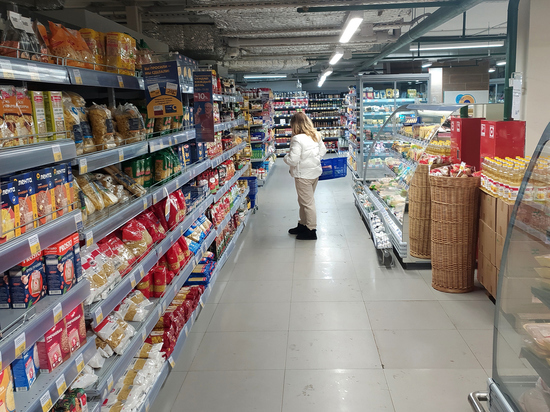«A total ban on exports to Russia» is unlikely to be implemented, but «the exhaustion of Western sanctions» is also a myth
First Bloomberg, now Kyodo. Immediately, two authoritative Western news agencies reported on the discussion within the G7 of such an economic equivalent of a nuclear war as a complete ban on any export to Russia from the G7 countries. Despite the fantastic number of sanctions imposed against the Russian Federation, today everything that is not prohibited can be supplied to our country from the West. The new sanctions system is proposed to be built on directly opposite principles: everything is prohibited except for a narrow list of clearly defined exceptions.

Sounds like something too radical? Definitely. Even the Bloomberg article itself contains language hinting at this: “The proposal is still under discussion and may change … There are potential serious obstacles in the way of implementation (of these proposals. —).
In order to enter into force in the EU, the new criteria must be approved by all members of the bloc. This will set off an angry debate and likely feedback from companies that still export goods to Russia.”
In addition, Bloomberg mentions the «risk of retaliation» from Russia and the risk of pushing Moscow even deeper into Beijing's arms. Any one of these risks — and even more so all of them taken together — can torpedo the idea of »closing the door to Russia and throwing away the key.»
66 billion dollars — this is the total value of exports to the Russian Federation from the EU countries, the USA, Canada and Japan — do not lie on the road. And this applies even to Moscow's most ideologically charged opponents. For example, I was upset when I read Bloomberg's composition of the «Big Three» of the main European exporters to Russia. The first two items on this list are not surprising: Germany and Italy. But the third place is taken by Poland…
In short, at the moment this initiative looks like a blow off steam in preparation for the next G7 summit in Japan this May. However, considering the Westerners as “paper tigers” who have exhausted their possibilities in terms of building up sanctions pressure on Russia is also a huge mistake.
In their attitude to the “ninth wave” of Western sanctions, citizens of the Russian Federation have gone through several stages. The first stage is a mixture of panic and apocalyptic expectations. I remember, for example, how last March I bought an unusually large number of cartridges and printer paper. This was followed by a startled realization: the store shelves were still full, the planes were still flying. Now many, according to my feelings, are in the third stage — the stage of euphoria. Like, these Westerners can't do anything. We are knee-deep in all their economic sanctions!
I don't want to play the role of Cassandra, but the euphoria, in its degree of irrelevance, is not too different from the wave of panic a year ago. What can be done if the laws do not work? Produce even a certain number of new laws. This is the path the European Union followed in 2022, adopting more and more new packages of sanctions against Russia every few weeks.
But there is another way: to focus on monitoring the implementation of those sanctions norms that have already been adopted and closing all kinds of sanctions loopholes. Sanctions pressure in this case will cease to expand, but will begin to deepen, become more systemic and detailed.
One of the most authoritative experts in the Russian economy at the end of last year warned me about the high probability of just such a scenario. Judging by the news from different regions of the world, Turkey closes the possibility of supplying «sanctions» to Russia, one of the largest banks in the UAE began to block investment accounts of Russian citizens, «the largest bank in Cyprus notified about four thousand holders of Russian passports about the imminent closure of their accounts» — all gradually this is what happens.
Of course, this is not happening in isolation from other trends. The deepening of sanctions pressure is adjacent to its partial expansion (or, as follows from the reports of Bloomberg and Kyodo, plans for such an expansion) — as well as active actions by non-Western players.
Russia is opening up new loopholes where the West closes the old ones. China, realizing that it is not least of all getting it through Russia, is demonstrating its readiness to prevent Moscow from collapsing under the weight of Western sanctions, and the so-called “neutrals” are demonstrating their intention to “fish in troubled waters” as energetically as possible. .
The refusal of the West from direct economic relations with the Russian Federation is manna from heaven for all intermediaries who take off the foam and their margins. This is how we live — albeit restless, albeit not necessarily fun, but definitely very cheerful.


